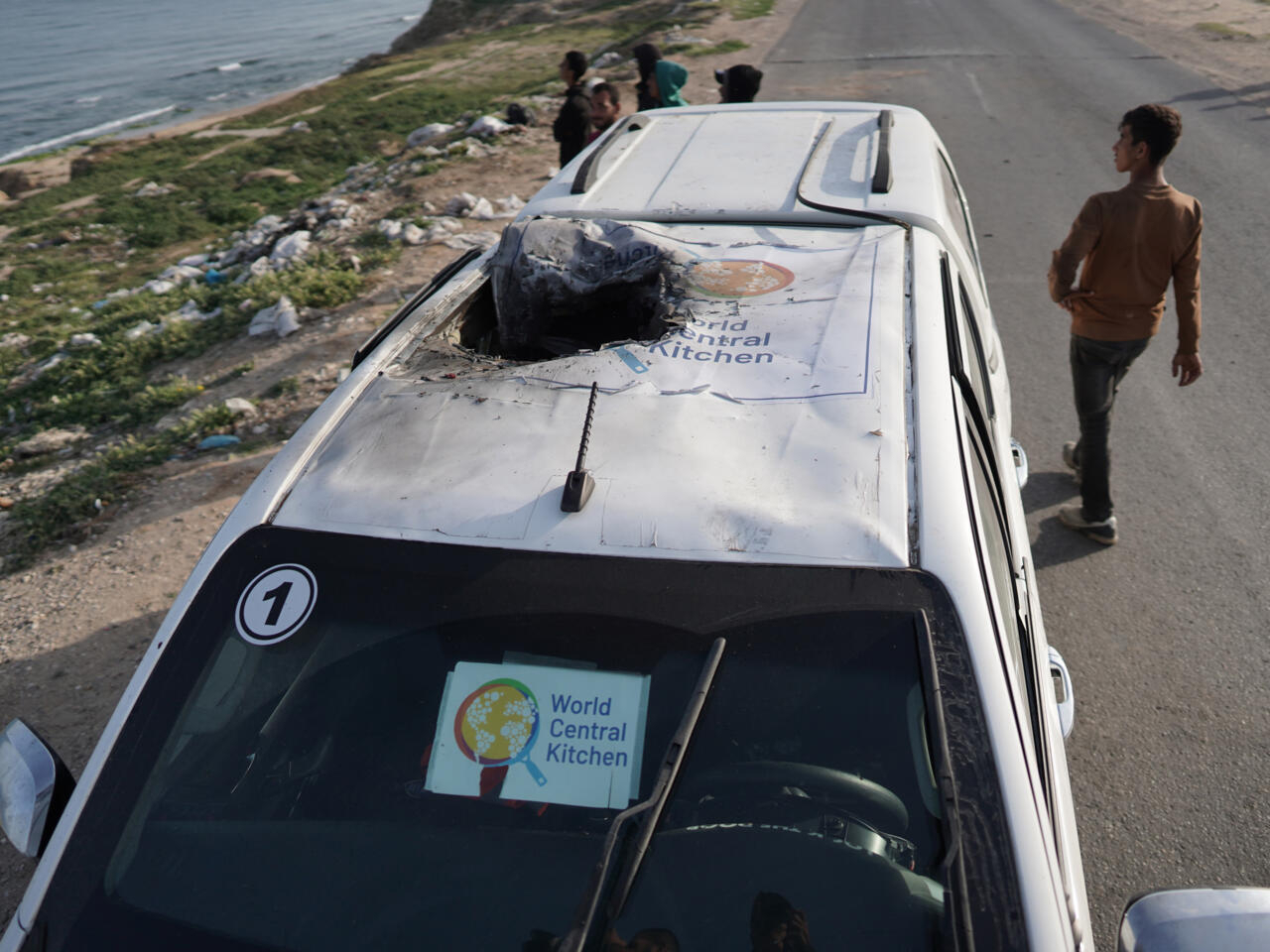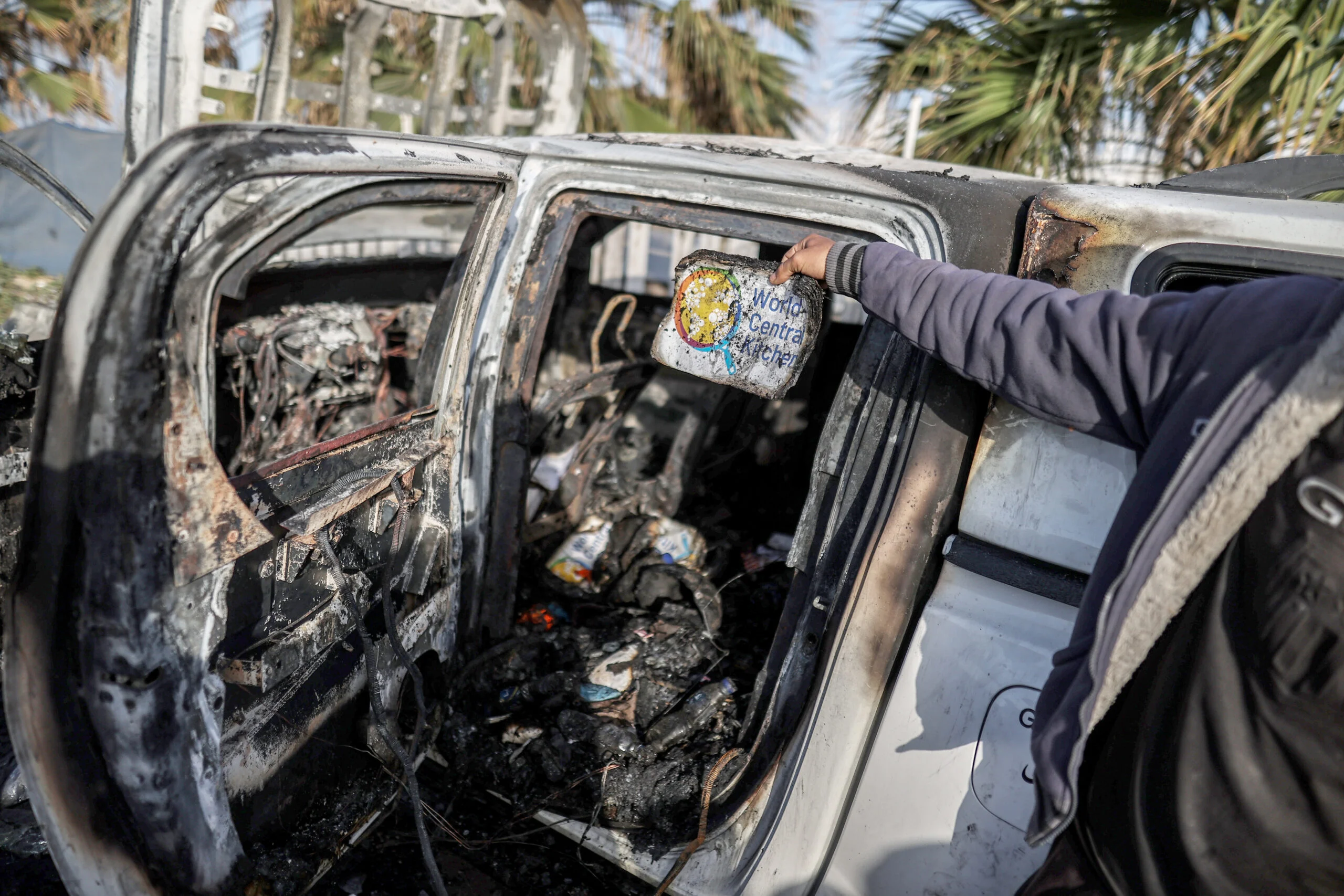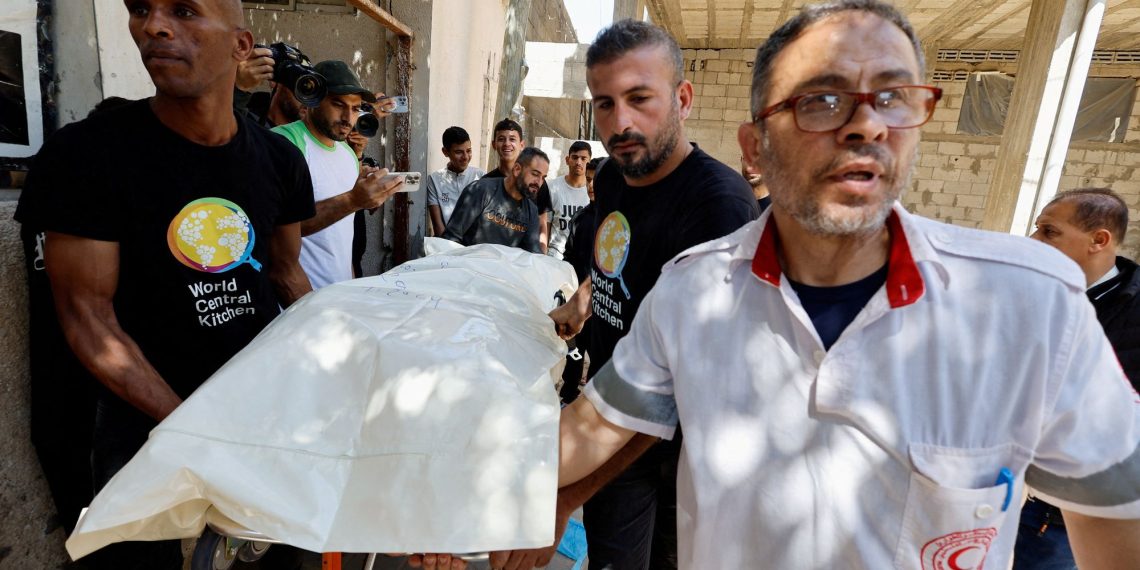An Israeli investigation into the airstrike that claimed the lives of seven aid workers in Gaza has uncovered significant errors and breaches of military protocol. As a consequence, two officers have been relieved of their duties, and senior commanders have faced formal reprimands.
The inquiry determined that Israeli forces mistakenly targeted the aid workers’ vehicles operated by the World Central Kitchen (WCK) aid group, believing them to be Hamas militants.
The strikes, carried out by drones late on Monday night, deviated from standard procedures and resulted from misidentification and errors in decision-making.

“The strike on the aid vehicles is a grave mistake stemming from a serious failure due to a mistaken identification, errors in decision-making, and an attack contrary to the Standard Operating Procedures,” stated the military in a released statement on Friday.
The victims of the strike included citizens from Britain, Australia, and Poland, a dual U.S.-Canadian national, and a Palestinian colleague.
Israel Held Accountable For The Attack
The incident sparked international outrage, with U.S. President Joe Biden warning of potential policy shifts towards Israel unless civilian and aid worker safety in Gaza is prioritized.
According to the military report, the aid convoy had stopped at a hangar for unloading before the strikes occurred. Commanders failed to identify the vehicles as belonging to WCK, despite the presence of armed individuals atop one of the trucks.
Yoav Har-Even, leading the IDF Fact-Finding and Assessment Mechanism inquiry, explained that the darkness obscured the visibility of the WCK logos on the vehicles’ roofs, leading to the mistaken belief that they were seized by Hamas fighters.

The military acknowledged the breaches of standard operating procedures and took disciplinary action, dismissing a brigade chief of staff and a brigade fire support officer, while senior officers received formal reprimands.
Jose Andres, founder of World Central Kitchen, condemned the targeting of the aid workers, describing it as a systematic attack as they sought shelter during the airstrikes.
The army committed to addressing visibility issues in the dark and implementing lessons learned from the tragic incident.




